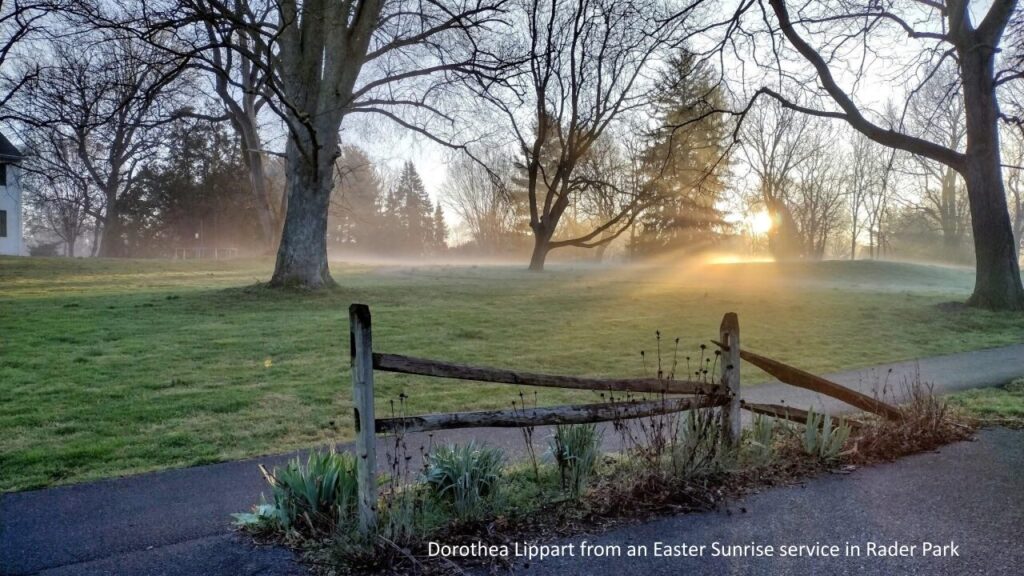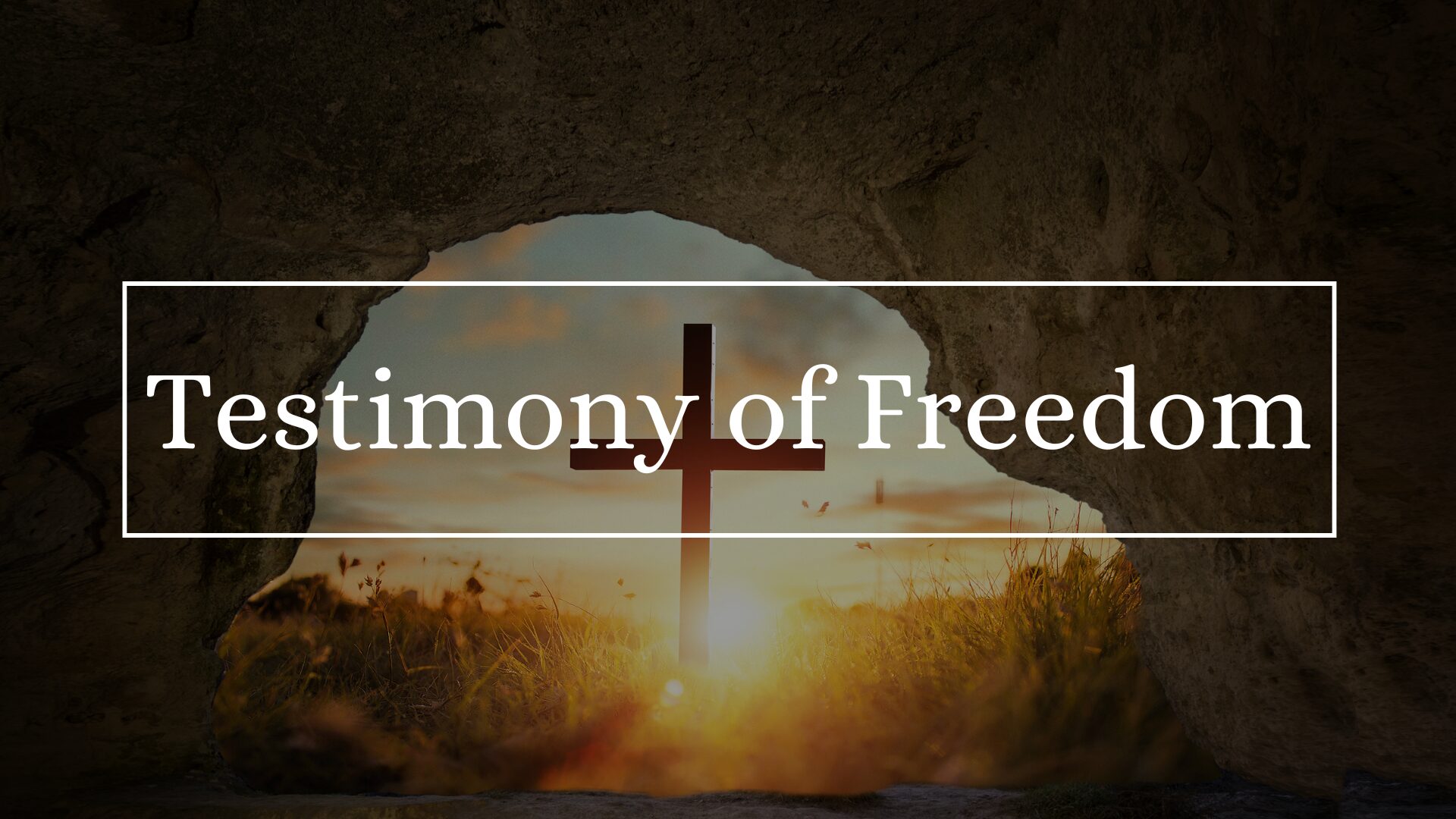This morning, we are starting a new series called The Cup of Freedom for the Easter season as we look at the freedom that we receive from God.
That is what Easter is about: the open tomb, the empty cross. We are freed to live. Our sins are forgiven. All that we have done, all the regrets that we have, we can release them because in God’s eyes we are whole and loved.
But to really feel that ourselves, we have to get honest about who we really are. We have to admit the times that we do hurt each other, the times that we have hurt each other, that we hurt those we love, the times that we have hurt others, and the times that we have been hurt.

This is a picture from an Easter Sunrise service a couple of years ago. We didn’t see the sun this morning, but it’s good to remember that it’s out there. A lot of us don’t like Holy Week, and we don’t come to those services because we don’t like to be reminded that we are just like those first disciples and we will betray, deny, and desert God, Jesus’ beliefs.
We will go the other way on a lot of things, maybe because of the crowd. A lot of people don’t like Good Friday because they don’t want to believe that they would be one of the ones who would say, crucify him. But, if we’re being honest. Could that be us? I think it could. I think it could be any of us, because we’re not as perfect as we want to believe that we are. We all have the potential.
You may be thinking we came to hear good news. Well, I think Easter sermons are hard because the story’s the same. We have a general sense of what’s going to happen, right? And although they change a little bit from gospel to gospel, there’s a running storyline that we have that the women will go to the tomb, and it will be empty. They’ll tell the disciples, these disciples won’t believe them. Peter will go and check himself, and then everything’s wonderful.
But what I noticed about Luke’s version, Luke 24:5b-12, is that only Luke says this, “but these words seemed to them an idle tale” – Luke 24:11. Idle tale in Greek is the word lēros, which means nonsensical, lacking credibility or seriousness. In other words, they didn’t believe them. In the version I read at the early service, it translated as that they were lying.
I wonder how often we hear the story of another person and we question it.
We question the validity of someone’s story because it wasn’t our experience. That happens to people of color, to immigrants, to LGBTQ+ people, and members of the queer community. I know that because I hear their stories, and we are called to hear their stories and to believe them, just as we want to be believed.
In this story, I think this tension happens when the women aren’t believed. Shocking, especially in the first century, because women were property, they had no voice and no claim on anything.
How would life be if we actually believed one another?
If we actually took seriously what one another says, then maybe we too would experience new life. Maybe we would experience the freedom that God has for us.

God wants us to enjoy this life, to be let free, to forgive ourselves for the things that we wish we hadn’t done. We all have those moments where we wish we could take that back, that we hadn’t said that, or that we wish we hadn’t done that to that person. We can forgive ourselves, and we can forgive those who have hurt us, and in that, we can find new life.
The beauty of today is that we get to celebrate that in communion. To me, communion is at the heart of what we do because communion reminds me that I am loved and forgiven. I don’t believe that it actually becomes the body and blood of Christ. That sounds gross to me, but I do believe that in partaking of communion, I am drawn closer to God. I am drawn closer to you because we are going to eat it together. We’re going to eat one loaf, and we become the body of Christ, the Hands, and the feet of Christ, who are called to share this freedom that we have with every person we meet.
A good way to do that is by listening to their story and believing them, even if it’s not our story.
I think that we are living through a time that will be written about in the history books, and only they get to judge us, but we get to do our best at being loving and compassionate. People who act out of our empathy, who are willing to listen and to do the next most loving thing in every moment, and I decided that we needed to say the words that we’ve been using through Lent, we needed to do it one more time.

“Careful the things you say. Children will listen. Careful the things you do. Children will see. Children may not obey, but children will listen. Children will look to you for which way to turn, to learn, what to be. Careful before you say, listen to me.”



